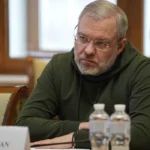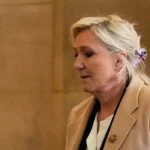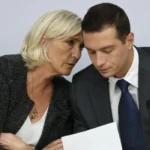In a dramatic escalation of the so-called ‘Qatargate’ scandal, Belgian police have issued an arrest warrant for a US-based Qatari lobbyist suspected of orchestrating a complex bribery scheme aimed at influencing European Union officials. The announcement marks a significant development in the wide-ranging investigation that has surveilled corruption, illicit lobbying, and the undermining of democratic institutions within the EU.
The Investigation’s Expanding Scope
The investigation into ‘Qatargate’ began several months ago after Belgian authorities uncovered a network allegedly involved in offering bribes in exchange for legislative and regulatory favors. The scandal sheds light on the mechanisms through which foreign interests attempt to manipulate EU decision-making processes, raising urgent questions about transparency and accountability.
The issuance of the arrest warrant for the lobbyist based in the United States signals that the probes now stretch beyond Europe’s borders, encompassing actors who reportedly used international channels to facilitate their dealings. The move came following stringent evidence-gathering by investigators, including wiretaps and financial record analysis, indicating the lobbyist played a pivotal role in coordinating payoffs linked directly to Qatari interests.
Details About the US-Based Qatari Lobbyist
Though the lobbyist’s identity has not been publicly disclosed due to judicial privacy regulations, sources close to the investigation reveal that the individual has been active within both Washington’s and Brussels’ political circles. The lobbyist allegedly leveraged professional relationships and lobbying firms to channel large sums of money to influential EU officials. This complicated web of influence reportedly aimed to secure favorable outcomes in energy policy, financial regulations, and diplomatic negotiations beneficial to Qatar.
In recent statements, a spokesperson for the Belgian Federal Judicial Police remarked,
“The arrest warrant underscores our commitment to exposing and dismantling all facets of this transnational corruption network.”
The spokesperson emphasized the importance of international cooperation in this inquiry, particularly with U.S. authorities who are expected to facilitate the lobbyist’s eventual apprehension.
Impact on EU Institutions and Reforms
The ‘Qatargate’ scandal has sparked intense scrutiny across Brussels as it directly implicates several officials within EU institutions. The revelations have fueled public outrage and increased pressure on EU bodies to bolster anti-corruption measures. Lawmakers across member states have called for sweeping institutional reforms to tighten oversight over lobbying activities and financial disclosures.
EU Parliament President remarked on the development,
“This situation is a wake-up call for the entire European Union. We must ensure our decision-making processes are immune from improper foreign influence.”
The incident has also revived debates about the transparency of lobbying and the resilience of the EU’s ethical frameworks.
In response, the European Commission has pledged to review existing rules and implement stronger controls over third-party lobbying. This move aims to restore confidence in EU governance and prevent similar corruption schemes from taking root in the future.
Reactions from Qatar and the US
The government of Qatar has officially denied any involvement in illicit lobbying activities related to the scandal. A spokesperson for the Qatari Foreign Ministry categorically stated,
“Qatar is committed to lawful and transparent diplomatic engagement and condemns any allegations of illegal interference in foreign institutions.”
At the same time, Qatar has expressed willingness to cooperate with relevant authorities to clarify the matter.
From the United States, officials have acknowledged the need for coordinated investigations given the lobbyist’s residency on American soil. The U.S. Department of Justice and the Federal Bureau of Investigation are reportedly liaising with Belgian authorities to assist in the legal proceedings. The cross-border nature of the case underscores the global dimension of corruption and the shared responsibility of countries to uphold integrity in international affairs.
Legal Challenges and the Road Ahead
The arrest warrant sets in motion a complicated legal process that may involve extradition requests and prolonged judicial battles. Given the lobbyist’s location in the U.S., Belgian prosecutors will likely seek cooperation under bilateral treaties to ensure the suspect is brought to justice. Legal experts anticipate that this phase of the investigation could take months, if not longer, due to the complexities of international law and diplomatic sensitivities.
Meanwhile, EU officials have reiterated their resolve to pursue all individuals involved, regardless of nationality or status. The scandal has already triggered several disciplinary investigations and tightened compliance scrutiny within EU bodies, signaling a zero-tolerance approach toward corruption.
Broader Implications for Global Lobbying Practices
The ‘Qatargate’ affair highlights broader concerns about the opacity of international lobbying and the need for more rigorous regulatory frameworks worldwide. It illustrates how foreign powers may attempt to covertly influence policymaking in major political blocs like the EU, leveraging intermediaries to shield their activities.
Transparency advocates stress the importance of establishing clearer rules on lobbying disclosures and enhancing whistleblower protections to uncover misconduct early. Analysts warn that unless institutional reforms keep pace with the evolving tactics of influence, democratic integrity remains vulnerable to manipulation.
As authorities move to apprehend the US-based Qatari lobbyist and unravel the full extent of the ‘Qatargate’ scandal, the episode serves as a stark reminder of the persistent challenge posed by corruption in global governance. The case not only exposes vulnerabilities within the EU’s political architecture but also underscores the importance of international collaboration in combating illicit influence operations.
The developments ahead will be closely watched by governments, institutions, and civil society, all eager to see whether justice can be served and how effective future safeguards will be in preserving democratic transparency against similar threats.







